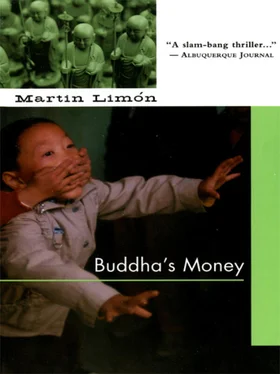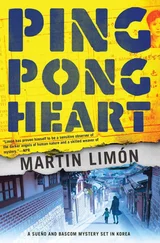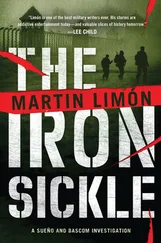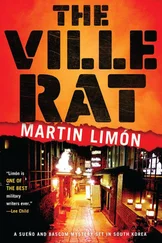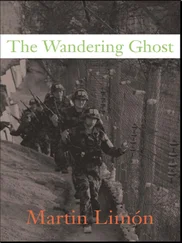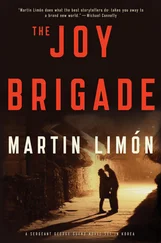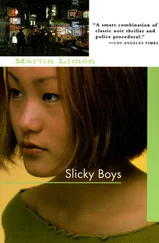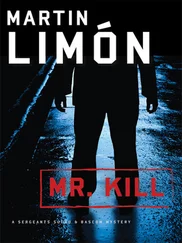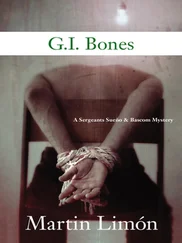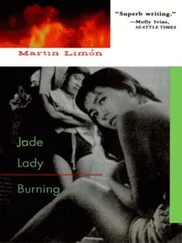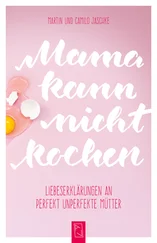Martin Limon - Buddha's money
Здесь есть возможность читать онлайн «Martin Limon - Buddha's money» весь текст электронной книги совершенно бесплатно (целиком полную версию без сокращений). В некоторых случаях можно слушать аудио, скачать через торрент в формате fb2 и присутствует краткое содержание. Жанр: Полицейский детектив, на английском языке. Описание произведения, (предисловие) а так же отзывы посетителей доступны на портале библиотеки ЛибКат.
- Название:Buddha's money
- Автор:
- Жанр:
- Год:неизвестен
- ISBN:нет данных
- Рейтинг книги:5 / 5. Голосов: 1
-
Избранное:Добавить в избранное
- Отзывы:
-
Ваша оценка:
- 100
- 1
- 2
- 3
- 4
- 5
Buddha's money: краткое содержание, описание и аннотация
Предлагаем к чтению аннотацию, описание, краткое содержание или предисловие (зависит от того, что написал сам автор книги «Buddha's money»). Если вы не нашли необходимую информацию о книге — напишите в комментариях, мы постараемся отыскать её.
Buddha's money — читать онлайн бесплатно полную книгу (весь текст) целиком
Ниже представлен текст книги, разбитый по страницам. Система сохранения места последней прочитанной страницы, позволяет с удобством читать онлайн бесплатно книгу «Buddha's money», без необходимости каждый раз заново искать на чём Вы остановились. Поставьте закладку, и сможете в любой момент перейти на страницу, на которой закончили чтение.
Интервал:
Закладка:
The gray sky darkened as if someone had pulled a shade. The rain fell harder. Herman guided us to another antique shop and Ernie stopped in front, waving with his free arm for the honking cabs behind us to pass.
"This is the last one," Herman said.
"Good," Ernie said. "We still have time to make Happy Hour."
"No way," I said. "We have an ancient jade skull to find and not much time to find it. Sobriety could prove useful."
Ernie groaned, flicking his wrist for us to hurry. "Make it quick, will you?"
Herman and I clambered out of the jeep, crossed the sidewalk bobbing with umbrellas, and pushed through a beaded curtain into the cool confines of a dimly lit shop.
At first I thought he was one of the statues. A long-faced man, wrinkles sagging from limp cheeks. He wore a jade-colored tunic, gray pantaloons, and soft-soled cloth shoes.
Then the statue opened his mouth and said, "Oso-oseiyo"- please come in.
Herman came right to the point. "You send somebody to talk to me, Papa San? A woman?"
The old dealer gazed back and forth between us, his face calm, almost smiling.
"Yes," he said. "I did. A beautiful woman."
Bingo! I stepped forward. "Why did she want to talk to Herman?"
The old man turned away from me, upset by my passion.
"Kulsei," he said. It's that way.
I stepped back, lowered my voice. I didn't want to frighten him into silence.
"We've lost contact with this woman," I told him. "That's all. We're just trying to find out why she wanted to talk to Herman in the first place."
Maybe my English was too complicated for him, maybe he just wanted time to think. But when he didn't respond right away I repeated what I had told him in Korean.
He turned back to me, his face somewhat offended, and spoke in clear English.
"She told me she wanted to talk to an American. An American who can send something Stateside."
"Did she tell you what she wanted to ship?"
"No."
For once Herman seemed to grasp the situation. The old man was clamming up, not sure whether I was a cop or if Herman wanted him to talk to me or what. Herman opened his big fists and spread his fingers.
"Where is she now, Papa San? I need to talk to her. It's important."
The old man studied Herman.
'You don't want to talk to her."
"Yes, I do."
The old man shook his head. "No. She is a dangerous woman."
At the corners of Herman's mouth, drool started to bubble.
The old man shuffled over to a glass counter filled with intricately painted porcelain artifacts.
"First, I no want tell her about my friend." He pointed at Herman. "But she told me she would go to police. Tell them I do black market with Americans." He shrugged his narrow shoulders. "So I told her about this man."
I still didn't see it. "What makes you think she's dangerous?"
"The way she talks."
I waited.
"She's from the south. She has… how you say? Ssaturi"
"An accent," I said.
"Yes. But more than that." The old antique dealer looked at me, his eyes defiant, daring me to laugh. "This woman," he said, "is a yangban."
The yangban. The educated Confucian elite of the country. The landowners. The people who for centuries had been the only class who could read and write and therefore ran the politics and economics and cultural life of Korea.
"You're afraid of this woman because she's a yangban?" I asked.
The old man chortled at that. "No. f am yangban also. She's more than that."
"Then what is she?"
"She is Sung Cho."
It didn't compute. "You mean Yi Cho," I said. From a prominent family of the Yi dynasty, the dynasty that had ruled Korea for over five centuries.
The old man waved a withered hand. "No. Sung Cho." From the Sung dynasty.
"In China?"
He nodded.
For a moment I thought he was kidding me. The dynasty of the Sung emperors in southern China had been overthrown by the Mongols more than seven hundred years ago.
I let that sink in. In 1911 the Japanese had deposed the last king of the Korean Yi dynasty. The Crown Prince was taken against his will to Japan and forced to marry a Japanese woman. Later, he renounced any claim to the throne, and when Korea became a republic in 1945 the issue of nobility was long dead and buried. Maybe it was odd, in this day and age, to be worried about nobility. But that some people would still claim royal blood didn't seem strange to me. Every other person with a foreign accent in the United States claims to be related to a king or a count or a rajah.
"All right," I said. "So this woman has some blood from the rulers of an old Chinese dynasty. What's the big deal?"
The old man let his head sag. "You don't understand."
"Then explain it to me."
"Some people haven't given up." The leather of his neck quivered and he sat down on a stool. "They still think they can get it all back."
"Get what back?"
"The Dragon Throne. They think they can overthrow the Communists in Beijing and seat someone of royal blood on the Dragon Throne of China."
Back in the jeep, Ernie was pissed that we weren't going to Happy Hour. But the old antique dealer had given us the name of the yoguan-the Korean inn-where Lady Ahn had been staying. We had to check it out. And check it out now.
"It's in the Sodae-mun District," I told Ernie. "It'll only take a minute."
"Damn," Ernie muttered. "All the hors d'oeuvres will be gone."
He jammed the jeep in gear and the wheels swished through the wet streets.
For over four thousand years, Korea had been a separate country, at least by Western standards. What wasn't widely understood was that throughout that time, sometimes to a greater or a lesser extent, Korea had snuggled beneath the protective wing of the Chinese emperor. Although the Korean monarch ruled his kingdom without interference, Korean foreign policy always was conducted while looking over the royal shoulder for the approval or disapproval of the emperor sitting on the Dragon Throne of China. Even in official documents, Korea proclaimed itself a "little brother" of China. Their relationship was a filial one. The subordinate to the superior.
To give this relationship concrete form, the Korean king, every year, sent a convoy of dignitaries to the Dragon Throne in the Forbidden City in Beijing. The dignitaries presented tribute to the Chinese emperor consisting of thousands of taels' worth of magnificent goods.
During much of the Yi dynasty, before 1911, the Koreans were probably as independent as they'd ever been. But this was because of the growing power in the Far East of Japan and Russia. And the weakness of the Chinese Empire, which was being carved up by foreign powers and ravaged by the scourge of opium.
When the antique dealer had told us that Lady Ahn was from nobility that predated the Yi dynasty, he was speaking of traditions that were ancient indeed.
The wooden stairs creaked as Herman and I walked up the short flight of steps that led to the Beik Hua Yoguan, the Inn of the White Flower.
Immaculate varnished floors and railings led to a small foyer with a vase of white peonies and a display with a black-and-white photo of someone's ancestor in traditional dress. The odors of incense and ammonia wrestled in the dust-speckled air. We found the owner squatting on the vinyl floor, scrubbing nonexistent dirt with a kullei, a thick hand towel. She was a husky woman, with black hair tied back by a white bandanna. People spent their lives in places like this. Scrubbing floors, changing bedding, suffering obnoxious customers. This woman looked as if she had. Rising easily, she gazed calmly at Herman and me.
"Bang pillyo heiyo?" she asked. Do you need a room?
I answered in Korean. "We don't need a room. We're looking for a woman who is staying with you. A tall woman. Young. Maybe twenty-two. From the south. She calls herself Lady Ahn."
Читать дальшеИнтервал:
Закладка:
Похожие книги на «Buddha's money»
Представляем Вашему вниманию похожие книги на «Buddha's money» списком для выбора. Мы отобрали схожую по названию и смыслу литературу в надежде предоставить читателям больше вариантов отыскать новые, интересные, ещё непрочитанные произведения.
Обсуждение, отзывы о книге «Buddha's money» и просто собственные мнения читателей. Оставьте ваши комментарии, напишите, что Вы думаете о произведении, его смысле или главных героях. Укажите что конкретно понравилось, а что нет, и почему Вы так считаете.
